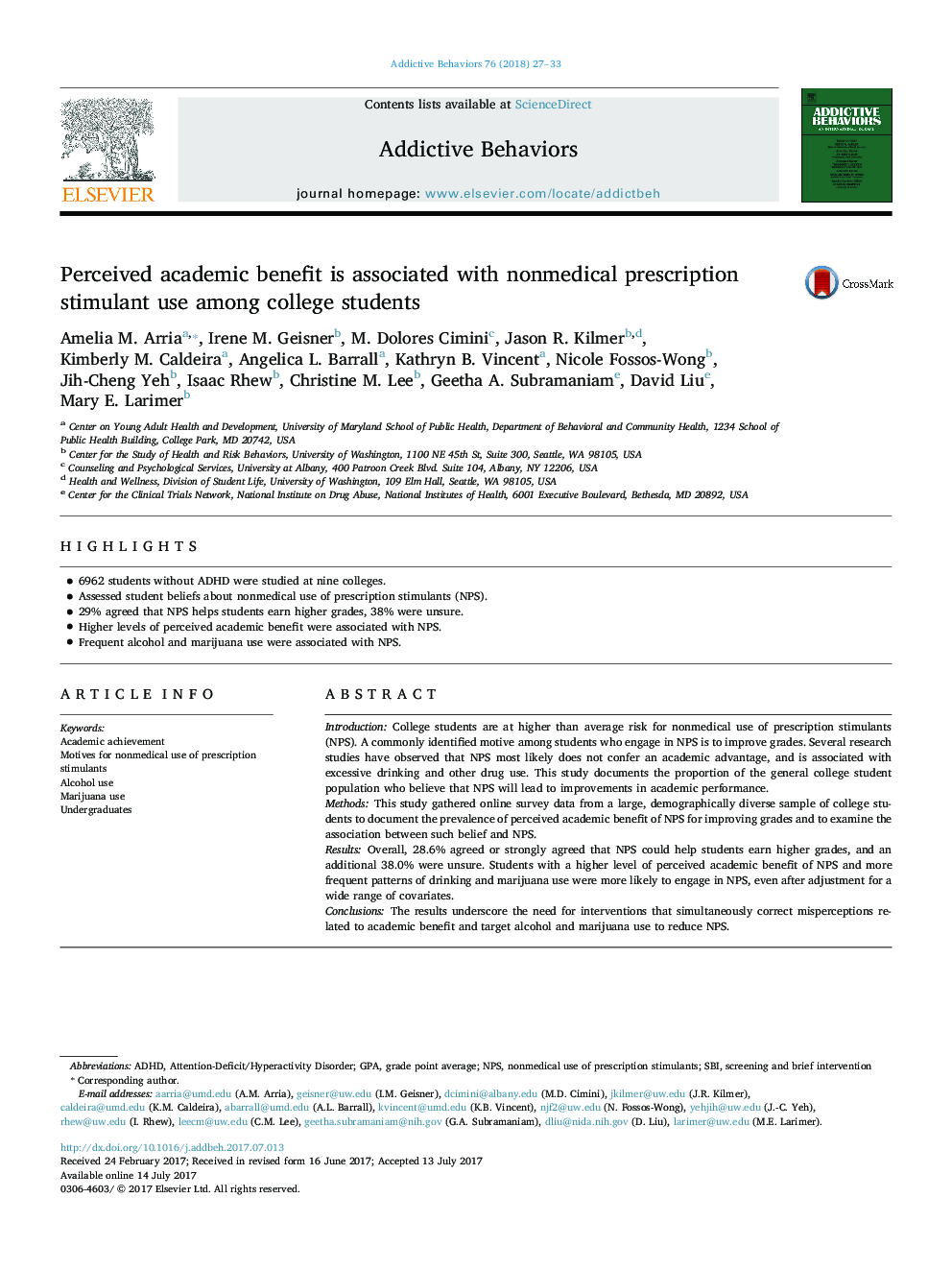| Article ID | Journal | Published Year | Pages | File Type |
|---|---|---|---|---|
| 5037605 | Addictive Behaviors | 2018 | 7 Pages |
â¢6962 students without ADHD were studied at nine colleges.â¢Assessed student beliefs about nonmedical use of prescription stimulants (NPS).â¢29% agreed that NPS helps students earn higher grades, 38% were unsure.â¢Higher levels of perceived academic benefit were associated with NPS.â¢Frequent alcohol and marijuana use were associated with NPS.
IntroductionCollege students are at higher than average risk for nonmedical use of prescription stimulants (NPS). A commonly identified motive among students who engage in NPS is to improve grades. Several research studies have observed that NPS most likely does not confer an academic advantage, and is associated with excessive drinking and other drug use. This study documents the proportion of the general college student population who believe that NPS will lead to improvements in academic performance.MethodsThis study gathered online survey data from a large, demographically diverse sample of college students to document the prevalence of perceived academic benefit of NPS for improving grades and to examine the association between such belief and NPS.ResultsOverall, 28.6% agreed or strongly agreed that NPS could help students earn higher grades, and an additional 38.0% were unsure. Students with a higher level of perceived academic benefit of NPS and more frequent patterns of drinking and marijuana use were more likely to engage in NPS, even after adjustment for a wide range of covariates.ConclusionsThe results underscore the need for interventions that simultaneously correct misperceptions related to academic benefit and target alcohol and marijuana use to reduce NPS.
